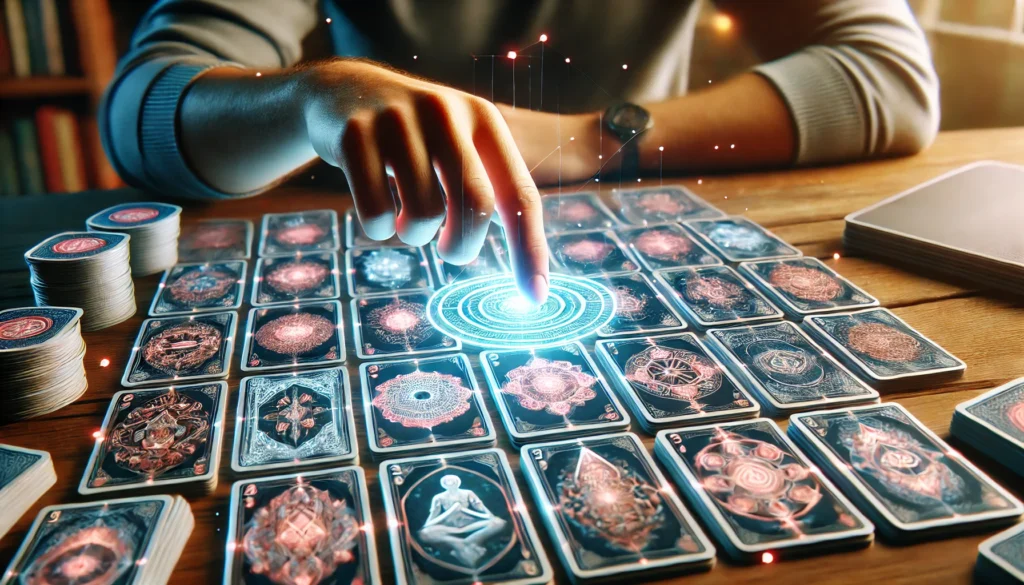In the ever-evolving landscape of brain health and cognitive enhancement, memory games have emerged as a powerful tool. These games, which often weave together elements of fun and challenge, promise not only to entertain but also to bolster cognitive abilities. The benefits of engaging in memory games are vast, touching on aspects from improved concentration to enhanced short-term memory. This article delves into the myriad ways memory games can be leveraged to enhance cognitive skills, drawing connections between historical practices, contemporary trends, and potential future implications.
You may also like: Boost Your Mind: Top Brain Games
The Science Behind Memory Games
Memory games, whether in the form of online card matches or intricate puzzles, leverage neuroplasticity — the brain’s remarkable ability to reorganize itself by forming new neural connections. This process is essential for learning and memory. Engaging in activities that stimulate the brain can lead to improved neural function and potentially delay cognitive decline.
Neuroplasticity and Cognitive Enhancement
Neuroplasticity is the foundation upon which memory games operate. By challenging the brain to recognize patterns, recall information, and solve problems, these games stimulate brain activity in regions responsible for memory and concentration. Regular engagement can result in improved cognitive flexibility, increased processing speed, and more efficient problem-solving abilities.
Memory games encourage the brain to adapt to new challenges by fostering mental agility. This adaptability is crucial for problem-solving in everyday life and can lead to better decision-making skills. By frequently engaging in such games, individuals may find it easier to adapt to new situations and learn new skills.
Neuroplasticity is not just about enhancing current cognitive functions; it’s also about preserving them. By continuously challenging the brain, memory games can help maintain cognitive functions that might otherwise decline with age. This preservation is particularly important as individuals seek to maintain their independence and mental acuity in later years.
Historical Context of Memory Games
Memory games are not a novel concept. Historically, exercises designed to enhance memory can be traced back to ancient civilizations. The Greeks and Romans, for instance, employed mnemonic devices — techniques aimed at enhancing memory through association and visualization. These ancient practices have laid the groundwork for modern memory games, which now benefit from technological advancements and accessibility.
The use of mnemonic devices in ancient times highlights the importance of memory in oral traditions. Before the advent of writing, cultures relied heavily on memory to pass down knowledge, history, and traditions. These early practices underscore the intrinsic value humans have placed on memory throughout history.
In medieval times, memory systems were refined further, with scholars developing complex techniques to memorize vast amounts of information. These historical practices reflect a long-standing tradition of memory enhancement, demonstrating how contemporary memory games are rooted in a deep historical context.
Modern memory games have evolved from these ancient and medieval traditions, integrating technology to enhance accessibility and engagement. Today, individuals can engage with memory games on digital platforms, making them more accessible than ever before, while still relying on the foundational principles of memory enhancement from the past.
Types of Memory Games and Their Benefits
There is an array of memory games available today, each catering to different aspects of cognitive function. Let’s explore some popular types and their specific benefits:
Memory Card Games
Memory card games, often referred to as “Concentration” or “Pairs,” require players to remember the location of cards to find matching pairs. These games sharpen short-term memory and improve attention to detail. They can be played physically with a deck of cards or online, providing flexibility and accessibility.
These games are particularly beneficial for children, helping them develop concentration and observational skills from a young age. By engaging in such games, children learn to focus their attention and improve their ability to retain visual information, skills that are transferable to academic settings.
For adults, memory card games offer a quick and engaging way to break from daily routines while maintaining mental sharpness. The challenge of remembering card positions exercises the brain’s working memory, which is crucial for day-to-day tasks such as following directions or remembering appointments.
Beyond individual benefits, memory card games can be social activities that promote interaction and communication. Playing with others encourages social bonding and creates opportunities for shared experiences that are both fun and mentally stimulating.

Brain Games for Seniors
Free brain games for seniors are specifically designed to cater to the cognitive needs of older adults. These games often focus on improving memory, attention, and problem-solving skills. Studies suggest that regular engagement in such games can help maintain cognitive function and potentially delay the onset of dementia-related symptoms.
These games often incorporate familiar themes and simple interfaces to ensure accessibility and ease of use for seniors. By offering a range of difficulty levels, they cater to varying cognitive abilities, ensuring that seniors can find games that suit their skill levels.
Engaging in brain games can also provide seniors with a sense of accomplishment and purpose. Successfully completing challenges boosts confidence and can lead to improved mental well-being and a more positive outlook on life.
Social interaction is another key benefit, as many senior brain games encourage group participation. Whether played in a community center or online with friends, these games provide opportunities for socialization, reducing feelings of isolation that can be common among older adults.
Online Memory Puzzles
Online memory puzzles challenge players to solve problems and recognize patterns, enhancing both memory and analytical skills. These games often incorporate elements of strategy, requiring players to think several steps ahead, thus promoting executive functioning.
The digital nature of online puzzles allows for a wide range of games that can be updated regularly, keeping content fresh and engaging. This variety ensures that players remain interested and motivated to continue challenging their cognitive abilities.
Online platforms often track progress and provide feedback, allowing players to monitor improvements in their cognitive skills over time. This tracking can serve as a motivational tool, encouraging continued engagement with the games.
These puzzles also offer the convenience of being accessible from anywhere with an internet connection, allowing individuals to incorporate cognitive training into their daily routines easily. This flexibility makes it easier for users to maintain consistency, which is key to achieving long-term benefits.
Apps and Games for Short-Term Memory Loss
For individuals experiencing short-term memory loss, specialized apps and games offer targeted cognitive exercises. These games emphasize repetition and recall, helping users strengthen their memory retention abilities over time.
Many of these apps are designed in consultation with cognitive scientists, ensuring that the exercises are effective and evidence-based. This scientific backing provides users with confidence in the potential benefits of the games.
The use of gamification in these apps encourages users to engage with the exercises regularly. By incorporating elements such as rewards, levels, and achievements, these apps make cognitive training more enjoyable and less daunting.
Personalization is another key feature, with many apps tailoring exercises to the user’s specific needs and progress. This customization ensures that users are consistently challenged at an appropriate level, maximizing the potential for cognitive improvement.
Practical Advice for Incorporating Memory Games
Integrating memory games into daily routines can be a seamless process. Here are some practical tips:
Setting a Routine
Consistency is key when it comes to cognitive enhancement. Designate a specific time each day for playing memory games, whether it’s during a morning coffee break or an evening wind-down session.
Creating a routine helps establish a habit, making it more likely that individuals will stick with their cognitive training over the long term. This regularity is crucial for seeing sustained improvements in cognitive abilities.
Incorporating memory games into existing routines, such as playing a quick game during a commute or while waiting for an appointment, can make it easier to maintain consistency without feeling like an additional task.
It’s important to be flexible and adjust the routine as needed to prevent it from becoming monotonous. Introducing new games or varying the time spent playing can help keep the routine fresh and engaging.

Choosing the Right Games
Select games that align with your cognitive goals. For instance, if you aim to improve your short-term memory, focus on games that require quick recall and pattern recognition.
Consider the difficulty level of the games to ensure they are challenging yet achievable. Games that are too easy may not provide sufficient cognitive stimulation, while overly difficult games can lead to frustration and decreased motivation.
Explore a variety of games to target different cognitive skills. By incorporating games that focus on memory, attention, problem-solving, and other cognitive functions, individuals can achieve a more comprehensive brain workout.
Seek recommendations or reviews to find high-quality games that are well-designed and enjoyable. Engaging with reputable games increases the likelihood of reaping cognitive benefits while also ensuring a fun experience.
Balancing Fun and Challenge
While the primary aim is cognitive improvement, it’s essential to enjoy the process. Choose games that are engaging and offer a balance between fun and challenge to maintain motivation.
The enjoyment derived from playing memory games can enhance motivation and lead to more frequent participation. Finding games that are both entertaining and beneficial encourages individuals to engage regularly.
It’s important to periodically reassess the games being played to ensure they remain challenging as cognitive skills improve. Gradually increasing the difficulty level can help sustain interest and continue cognitive growth.
For those who enjoy competition, playing with friends or family can add an additional layer of fun. Friendly competition can motivate players to improve their skills and reach new levels of cognitive performance.
The Future of Memory Games
As technology continues to advance, the potential for memory games to evolve and offer even greater cognitive benefits is immense. Virtual reality (VR) and augmented reality (AR) are poised to revolutionize the way we engage with memory games, providing immersive experiences that stimulate the brain in novel ways.
Virtual Reality and Augmented Reality
VR and AR technologies can create environments that challenge the brain through multi-sensory engagement. These platforms can offer tailored experiences that adapt to an individual’s cognitive needs, providing a personalized approach to brain training.
The immersive nature of VR and AR allows for the creation of realistic scenarios that require complex problem-solving and memory recall. By engaging multiple senses, these technologies can enhance the depth and effectiveness of cognitive training.
VR and AR can also simulate environments that are impractical or impossible in real life, offering unique challenges that stimulate creativity and strategic thinking. This variety can lead to more comprehensive cognitive development.
As these technologies become more accessible, they hold the potential to democratize access to advanced cognitive training tools, making them available to a wider audience and promoting brain health on a larger scale.
The Role of Artificial Intelligence
Artificial intelligence (AI) has the potential to further enhance memory games by analyzing user performance and tailoring challenges to optimize cognitive development. AI-driven games can adapt in real time, ensuring that users are constantly challenged and engaged.
AI can provide detailed feedback on performance, highlighting areas of strength and opportunities for improvement. This personalized feedback can guide users in focusing their efforts on specific cognitive skills.
By continuously analyzing data, AI can predict user preferences and adjust game content to maintain engagement. This adaptability ensures that games remain relevant and appealing to users over time.
The integration of AI in memory games also opens up possibilities for collaborative learning experiences, where users can engage with AI-driven characters or scenarios that mimic real-life interactions, further enhancing cognitive training.

Conclusion
Memory games represent a valuable tool in the quest for cognitive enhancement. By engaging in these games, individuals can harness the power of neuroplasticity to improve memory, concentration, and overall brain health. As technology continues to evolve, the future of memory games holds even greater promise, offering innovative ways to challenge and strengthen our minds.
Whether you’re a health and wellness coach seeking reliable resources for clients, a science journalist translating complex information for the public, or a biohacker optimizing cognitive performance, memory games offer a practical and effective approach to brain health. Embrace the challenge, enjoy the process, and unlock the full potential of your cognitive abilities.
Incorporating memory games into daily life can lead to long-term cognitive benefits, enhancing not only individual brain health but also contributing to a society that values and promotes mental well-being. As we look to the future, the continued development of memory games promises exciting opportunities to explore new frontiers in cognitive enhancement.
Further Reading:
Important Note: The information contained in this article is for general informational purposes only, and should not be construed as health or medical advice, nor is it intended to diagnose, prevent, treat, or cure any disease or health condition. Before embarking on any diet, fitness regimen, or program of nutritional supplementation, it is advisable to consult your healthcare professional in order to determine its safety and probable efficacy in terms of your individual state of health.
Regarding Nutritional Supplements Or Other Non-Prescription Health Products: If any nutritional supplements or other non-prescription health products are mentioned in the foregoing article, any claims or statements made about them have not been evaluated by the U.S. Food and Drug Administration, and such nutritional supplements or other health products are not intended to diagnose, treat, cure, or prevent any disease.


